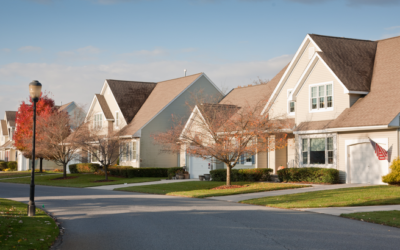
“Our homes are more than a place to live. They’re evolving into our workplaces, schools for our children, and safe havens that provide shelter, stability, and protection for our families through the evolving health crisis.”
June is National Homeownership Month, and it’s a great time to reflect on the benefits of owning your own home. Below are some highlights and quotes recently shared by the National Association of Realtors (NAR). From non-financial to financial, and even including how owning a home benefits your local economy, these items may give you reason to think homeownership stretches well beyond a sound dollars and cents investment alone.
Non-Financial Benefits
Owning a home brings families a sense of happiness, satisfaction, and pride.
- Pride of Ownership: It feels good to have a place that’s truly your own, especially since you can customize it to your liking. “The personal satisfaction and sense of accomplishment achieved through homeownership can enhance psychological health, happiness and well-being for homeowners and those around them.”
- Property Maintenance and Improvement: Your home is your stake in the community, and a way to give back by driving value into your neighborhood.
- Civic Participation: Homeownership creates stability, a sense of community, and increases civic engagement. It’s a way to add to the strength of your local area.
Financial Benefits
Buying a home is also an investment in your family’s financial future.
- Net Worth: Homeownership builds your family’s net worth. “The median family net worth for all homeowners ($231,400) increased by nearly 15% since 2013, while net worth ($5,000) actually declined by approximately 9% since 2013 for renter families.”
- Financial Security: Equity, appreciation, and predictable monthly housing expenses are huge financial benefits of homeownership. Homeownership is truly the best way to improve your long-term net worth.
Economic Benefits
Homeownership is even a local economic driver.
- Housing-Related Spending: An economic force throughout our nation, housing-related expenses accounted for more than one-sixth of the country’s economic activity over the past three decades.
- GDP Growth: Homeownership also helps drive GDP growth as the country aims to make an economic rebound. “Every 10% increase in total housing market wealth would translate to approximately $147 billion in additional consumer spending, or 0.8% of GDP, as well as billions of dollars in new federal tax revenue.”
- Entrepreneurship: Homeownership is even a form of forced savings that provides entrepreneurial opportunities as well. “Owning a home enables new entrepreneurs to obtain access to credit to start or expand a business and generate new jobs by using their home as collateral for small business loans.”
Bottom Line
The benefits of homeownership are vast and go well beyond the surface level. Homeownership is truly a way to build financial freedom, find greater satisfaction and happiness, and make a substantial impact on your local economy. If owning a home is part of your dream, let’s connect today so you can begin the homebuying process.
To view original article, visit Keeping Current Matters.
Unpacking the Long-Term Benefits of Homeownership
Higher mortgage rates, rising home prices, and ongoing affordability concerns may make you wonder if you should buy a home right now.
Why Your House Didn’t Sell
For insight on why your home didn’t sell, rely on a trusted real estate agent. A great agent will offer expert advice on relisting your house with effective strategies to get it sold.
The Return of Normal Seasonality for Home Price Appreciation
Don’t let the terminology confuse you or let any misleading headlines cause any unnecessary fear.
Beginning with Pre-Approval
Pre-approval gives you critical information about the homebuying process that’ll help you understand how much you may be able to borrow.
Your Home Equity Can Offset Affordability Challenges
Some homeowners are reluctant to sell and take on a higher mortgage rate on their next home, but what about home equity?
Are More Homes Coming onto the Market?
If you’ve been putting off selling your house, now may be the sweet spot to make your move. The longer you wait, the more competition you’ll have.





